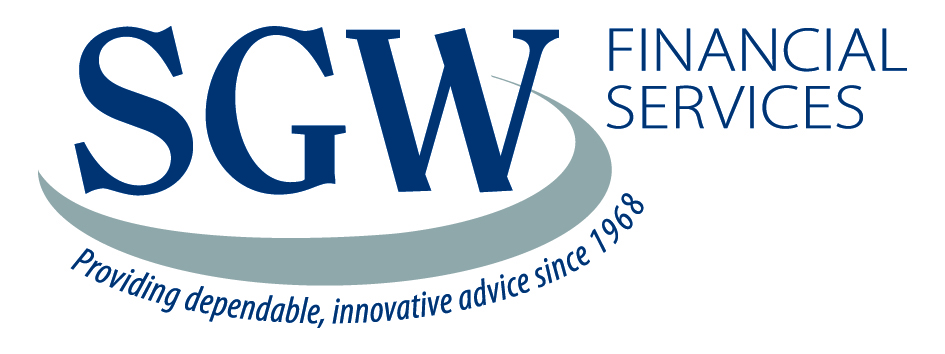Managing your money doesn’t have to be stressful. By breaking down your goals and establishing good habits you can work towards financial wellbeing.
With one in four Australians reporting more financial stress after COVID1, it’s no surprise many of us are concerned about the future. Between mounting bills, unexpected expenses and a lack of understanding around our needs in retirement, getting our savings on track and seeing the big picture can seem overwhelming.
It doesn’t need to be. If you break things down into small, manageable actions, you can create a simple plan to take immediate positive steps towards a healthy financial future.

Assess your debts
Debt is a reality for many Australian households, whether it’s a home loan, credit card, student loan, car finance or personal loan. It’s not uncommon to lose track of how much you owe and how much interest you’re paying as a result.
Understanding your debts can help you put a plan into action to pay them off sooner and in the optimal order, potentially saving you a lot of money. There are steps you can work through to manage what you owe and work out your priorities – such as making a list of all debts and their sums and categorising each as ‘good’ or ‘bad’.
Plan how to pay your bills
Some 14% of Australians2 report they have been unable to pay one or more bills on time in recent months, a reality that may be compounded through winter as extra heating sees utilities skyrocket.
One way to manage irregular bill amounts and unexpected rate spikes is to consider bill smoothing, a process where you establish automated payments of a set (and known) amount to cover utilities over the course of a year.
Establish an emergency fund
Putting aside extra money for that rainy day sounds simple, but it’s one that many Australians neglect – in fact, one in four3 of us believe we wouldn’t be able to raise $2,000 in a week if we needed to do so in an emergency.
If you are that one in four, it’s a good idea to set up an emergency fund as a separate account – it acts as a buffer from debt, helping you prepare for life’s curve balls. Keeping it away from your day-to-day savings account means you’re not tempted to dip into it for known, budgeted expenses such as rent or mortgage, groceries or school fees.
Look at your super
The government’s Early Release Scheme in 2020 saw 3.5 million Australians4 take advantage of the ability to dip into their super early. For many, having access to these funds helped ease immediate financial stress. If you’re not sure how to build this money back, you’re not alone – 30% of those who accessed their fund report a lack of awareness of how to recover their balances5.
A good first step is to calculate how much money you’ll need in retirement – there are various online tools to help you do this – then you can consider some of the ways you could rebuild your super and work out which one suits your circumstances.
Work on a savings plan
Deciding to pay yourself first – say, 10% of your income – is one simple way to boost your savings and improve your financial future, making you contribute a set amount of money into a savings account before you manage other household expenses.
It’s also a good idea to set up a separate savings account with a high interest rate. Then make sure that set amount of your salary, as well as any surplus in your day-to-day account, is automatically rolled over into your savings at the end of the month. Automating your accounts allows you to set and forget, so your nest egg will automatically grow every time money is deposited.
Think about any long-term financial goals
At what age do you want to be able to buy your first house? When do you want to retire? Do you know how much you need in your superannuation fund to retire comfortably? Many of us sweep these big questions under the carpet, but understanding them can help you prepare for your financial future.
Once you’ve mapped out your current financial position and established your long-term goals, you can use a range of online tools and calculators to help you get there.
You can also speak to us to help get your savings goals on track and make sure you head toward retirement with peace of mind.
1 AMP (2020): Financial Wellness in the Australian Workplace (p 13)
2, 3 AMP (2020): Financial Wellness in the Australian Workplace (p 4)
4 APRA (Feb 2021): COVID-19 Early Release Scheme – Issue 36
5 AMP (2020) Financial Wellness in the Australian Workplace (p 24)
Source: AMP May 2021
Important:
This information is provided by AMP Life Limited. It is general information only and hasn’t taken your circumstances into account. It’s important to consider your particular circumstances and the relevant Product Disclosure Statement or Terms and Conditions, available by calling 02 6947 2866, before deciding what’s right for you.
All information in this article is subject to change without notice. Although the information is from sources considered reliable, AMP and our company do not guarantee that it is accurate or complete. You should not rely upon it and should seek professional advice before making any financial decision. Except where liability under any statute cannot be excluded, AMP and our company do not accept any liability for any resulting loss or damage of the reader or any other person. Any links have been provided for information purposes only and will take you to external websites. Note: Our company does not endorse and is not responsible for the accuracy of the contents/information contained within the linked site(s) accessible from this page.
